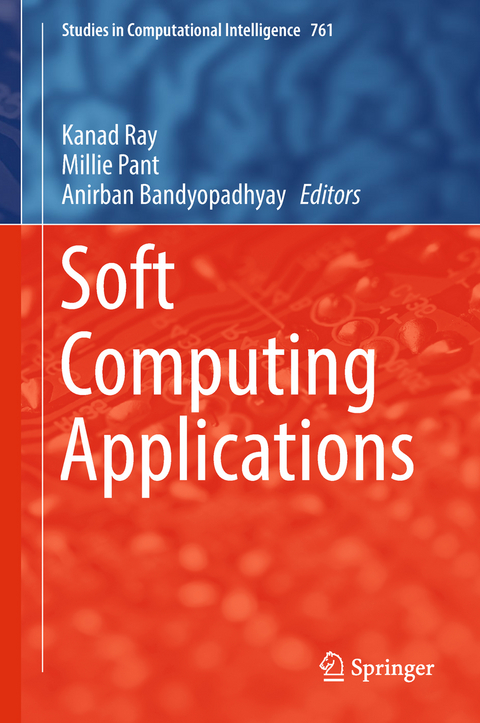
Soft Computing Applications
Springer Verlag, Singapore
978-981-10-8048-7 (ISBN)
The term soft computing represents an umbrella term for computational techniques like fuzzy logic, neural networks and nature inspired algorithms. In the past few decades, there has been an exponential rise in the application of soft computing techniques to address complex and intricate problems in diverse spheres of life. The versatility of these techniques has made them a favourite among scientists and researchers alike.
Kanad Ray is a Professor of Physics at Amity School of Applied Sciences Physics Amity University Rajasthan (AUR), Jaipur. In an academic career spanning over 19 years, he has published and presented research papers in several national and international journals and at conferences in India and abroad. He has authored a book on the Electromagnetic Field Theory. Dr. Ray’s current research interests include Cognition, Communication, Electromagnetic Field Theory, Antenna & Wave Propagation, Microwaves, Computational Biology and Applied Physics. Millie Pant is an Associate Professor at the Department of Paper Technology, Indian Institute of Technology Roorkee (IIT Roorkee), India. A well-known figure in the field of swarm intelligence and evolutionary algorithms, she has published several research papers in respected national and international journals. Anirban Bandyopadhyay is a Senior Scientist in the National Institute for Materials Science (NIMS), Tsukuba, Japan. He did his PhD (supramolecular electronics) from Indian Association for the Cultivation of Science (IACS), Kolkata in 2005. During 2005-2008, he got selected as Independent Researcher, ICYS Research Fellow in the International Center for Young Scientists (ICYS), NIMS, Japan while working on brain-like bio-processor building. In 2007, he started as permanent Scientist in NIMS, working on cavity resonator model of human brain & brain-like organic jelly. During 2013-2014, he was a visiting professor in MIT, USA. He got Hitachi Science and Technology award in 2010, Inamori Foundation award in 2011-2012, Kurata Foundation Award, Inamori Foundation Fellow (2011) & Sewa Society International member, Japan etc.
A Brain like Computer Made of Time crystal: Could a Metric of Prime alone Replace a User and Alleviate Programming Forever?.- Optimum Selection of Energy-Efficient Material: A MCDM Based Distance Approach.- Role of Sodium, Potassium and Synaptic Conductance in STN-GPe Model of Basal Ganglia in Parkinson Disease.- A New Hybrid Algorithm Using Chaos Enhanced Differential Evolution For Loss Minimization With Improvement of Voltage Profile of Distribution Systems.- Fractal and Periodical Biological Antennas: Hidden Topologies in DNA, Wasps and Retina in the Eye.- Efficient Multiprocessor Scheduling Using Water Cycle Algorithm.- Estimating Software Reliability Growth Model Parameters Using Opposition Based Shuffled Frog-Leaping Algorithm.
| Erscheinungsdatum | 16.04.2018 |
|---|---|
| Reihe/Serie | Studies in Computational Intelligence ; 761 |
| Zusatzinfo | 43 Illustrations, color; 25 Illustrations, black and white; X, 165 p. 68 illus., 43 illus. in color. |
| Verlagsort | Singapore |
| Sprache | englisch |
| Maße | 155 x 235 mm |
| Themenwelt | Informatik ► Theorie / Studium ► Künstliche Intelligenz / Robotik |
| Technik ► Nachrichtentechnik | |
| Schlagworte | ant colony optimization • Artificial Neural Networks • Bacteria Foraging Optimization • Bees Algorithms • Cloud Computing • Computational Electronics • Differential evolution • Fuzzy Systems • Genetic algorithms • Neural networks |
| ISBN-10 | 981-10-8048-8 / 9811080488 |
| ISBN-13 | 978-981-10-8048-7 / 9789811080487 |
| Zustand | Neuware |
| Haben Sie eine Frage zum Produkt? |
aus dem Bereich


